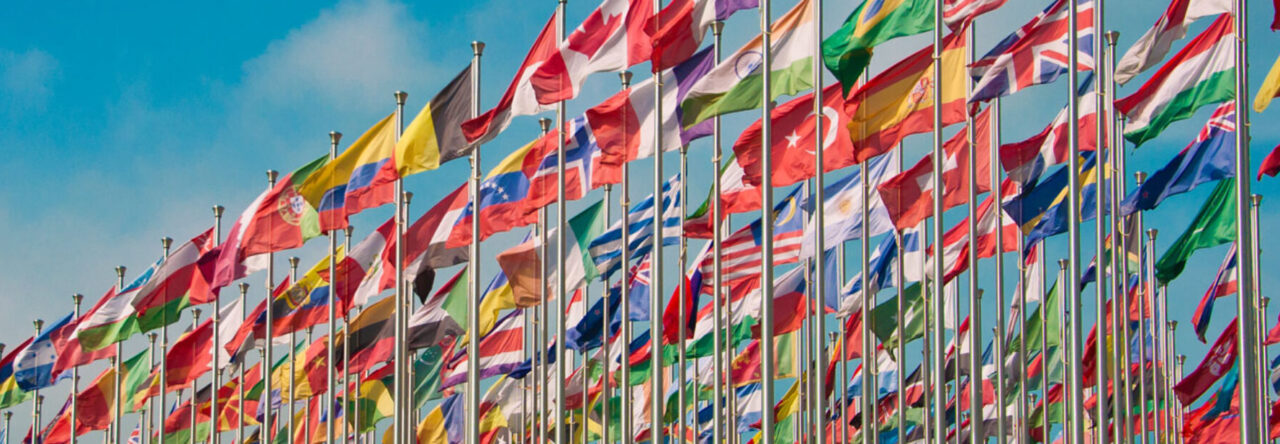Human beings have the capacity to recognize aspects of themselves in other people, allowing them to build communities and form meaningful interpersonal connections. The flip side of noticing similarities is that humans are equally cognizant of how they differ from others. For whatever reason, we tend to latch on to those differences and demonize what we simply may not understand or relate to. We cling to what we know and what we recognize of ourselves in others, writing off those whose differences we deem irreconcilable.
I was not fully aware of the practice of othering until I started high school, which of course was ruled by cliques. My school was unique in that the cliques did not form around the stereotypical high school social groups; they formed around artistic ability. I attended a performing arts high school where the dancers were friends with dancers, singers were friends with singers, and so on. There was of course some crossover but by and large, people stuck with their groups. Within each discipline, the groups were again divided by skill and talent, with those considered more talented gravitating towards each other. Each group also carried preconceived notions about their counterparts in other disciplines: the dancers were rude and cliquey, the theater kids were too loud and entitled, the visual artists were anti-social.
For members of my school’s specific social groups, it was easy to see members of the same group as individuals. They were the people they conversed with on a day to day basis, created art with, collaborated with. They knew each others names names, their pronouns, what they brought to lunch each day. However, when thinking about a group that a given person was not a part, the thinking became plural. Members of certain disciplines were viewed as a whole rather than as the individuals that the groups were comprised of, leading to the stereotypes I mentioned earlier.
I was somewhat of an odd case because my best friends were spread across different arts for my entire high school experience. I also didn’t mesh with the group I was “supposed to”. While the majority of my friends were dancers, I certainly was not. While I recognized that the stereotypes the groups made about each other didn’t necessarily have any verity to them, I didn’t do anything to actively combat them either. At times, I found myself slipping into plural thinking and making generalizations about one art discipline or the other that I wasn’t a part of. It’s not something that I’m proud of but it’s important to acknowledge.
High school cliques are a relatively benign example of othering, a phenomenon which is incredibly harmful on a larger, more serious scale. Othering can lead to incredibly hateful thoughts and behaviors, which fuel bigotry and prejudice. There is an important distinction between noticing a difference that you have with someone and making an assumption about them based on said difference. There’s nothing wrong with knowing someone is different than you; it’s only a problem if it affects how you treat them or measure their worth.

Malika Kaloo
Thank you for this thoughtful and interesting post, Sofia. I really love the way you have explained the perceptions/preconceived notions about the groups in your school. It is funny how high school cliques have become popular everywhere irrespective of culture. It is fascinating to know that you attended performing arts high school. My friend in the university went to a similar school and she always told me about the notions that one group had about the other. Through your post, I gained more insights into the differences within these groups. While this process of othering might be subtle, it can often lead to serious differences between people and fuel hatred and misunderstandings. In fact, a study by NYUCSC found that cliques can lead to bullying. This has become a serious concern worldwide. I also found it quite interesting how you came out of that bubble of stereotypes and had friends from across every group. I totally agree with you that it is important to notice a difference between you and the people around you, but the problem arises when you start making assumptions based on those differences. It is important to appreciate differences rather than trying to make everything monotonous. However, do you think that othering can have positive effects too? For example, forming associations that are important in social circles and finding our identity?
Riham Ali
Sofia, thank you for such an interesting take on the prompt! I completely agree with you that high school is when you are indeed introduced to the idea of in-groups and out-groups. It perhaps is the first time in our adolescence that we feel like we have a community, and even specific groups that we connect and resonate with. However, as your personal experience points out, I think it is also important to highlight that groups are not uniform. Especially in our diverse world today, it can be difficult for one person to fit into a singular group, and I think it is confining for one to believe that they should stay in one group. We have the opportunities to be exposed to such diversity that it would be a shame to stay associated with one group. This is where othering comes into play. As you mentioned, it can lead to intense hatred. Instead of viewing people that are different from us in a negative light, we should learn, adapt, and accept that not everyone is the same, but that does not mean that one is better than another. With all that being said, I am curious to know if you think the group cliche is still present in your university community now, and if it is, is it as negative as it was in high school?